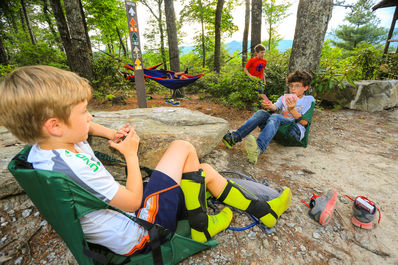iY Generation: Gaining Independence

Independence (adj)
Not influenced or controlled by others in matters of opinion, conduct, etc.; thinking or acting for oneself.
Generation iY is the now generation of kids, teenagers, and young adults. Any child born after 1990 is considered to be part of this peer group. This technology-rich generation has many talents balancing at the tips of their fingers, but so many lack social skills, leadership skills, and independence. Their best friends, all 261 of them, are just a “like” or click away.

Tim Elmore, author of Generation iY: Our Last Chance to Save Their Future and Artificial Maturity: Helping Kids Meet the Challenge of Becoming Authentic Adults. In both of these books, Tim describes how this rapidly growing generation has lost contact with so many basic skills even though they obviously excel in use of technology. It is not uncommon to see toddlers handling their own apps on a tablet or iPhone. Artificial maturity describes a false appearance in the maturity of children. For example, a five year old may be able to sit quietly through a dinner date. The couple next to them may comment that the child is really mature and well-behaved for his age, yet the tablet in his hands is the true reason he is able to sit through the dinner. It has nothing to do with his ability to engage in conversation, which is probably at a lower level than boys his age two decades earlier.
Tim describes a process of how these iY children are losing Independence as well. It is more common for these young adults to move back home after college. The percentage of the mid-20’s population that lives with their parents is increasing and continues to rise. Why? Tim believes that it has a direct connection with technology use. Before cell phones, it was only every once in a while that parents and their college student would communicate. With cell phones, it became a daily occurrence. But now, it is even more. Between social media and messaging, college students and their parents are in contact roughly 13.4 times each week and growing. These young adults are not learning how to “do it on their own.” They rely so much on their parents, even when away from home.
Summer Camp Grows Independence

Camp is a great way to grow independence in children, as well as leadership skills, confidence, and identity. Michael Thompson, Ph. D wrote the book, “Homesick and Happy: How Time Away from Parents can Help a Child Grow.” In his recent Huffington Post article, “Should I be Sending my Children to Camp?” he describes how residential camps can significantly teach children independence.
When children are asked why they love camp, many respond with; “I can really be myself here!”
How does the camp scene allow kids to ‘be themselves’? Who are they at home, if not themselves?

Dr. Thompson says they are able to have their own experience at camp. At home, they are constantly surrounded by their parents, siblings, and friends. At camp, it is a clean slate. There are no parents, no routines, no technology; but just themselves. There are no standards to meet and no social media to hide behind. They are not expected to score baskets in a ball game or finish all of their homework before Boy Scouts. The child can play without a mom in fear of injury or their jeans getting dirty.
When Dr. Thompson interviewed college admissions, they said that kids who attend residential camp are most likely to succeed in college because they have had successful experiences away from home!
Summer camp can grow children in so many ways. They are able to try, learn, and discover on their own time and ability. They are faced with choices and decisions that they make solely on their own, without the influence of others around them! Oh, and did I mention they do this all without the use of technology?!
Do you want to see your child become more independent? Send them to camp!!